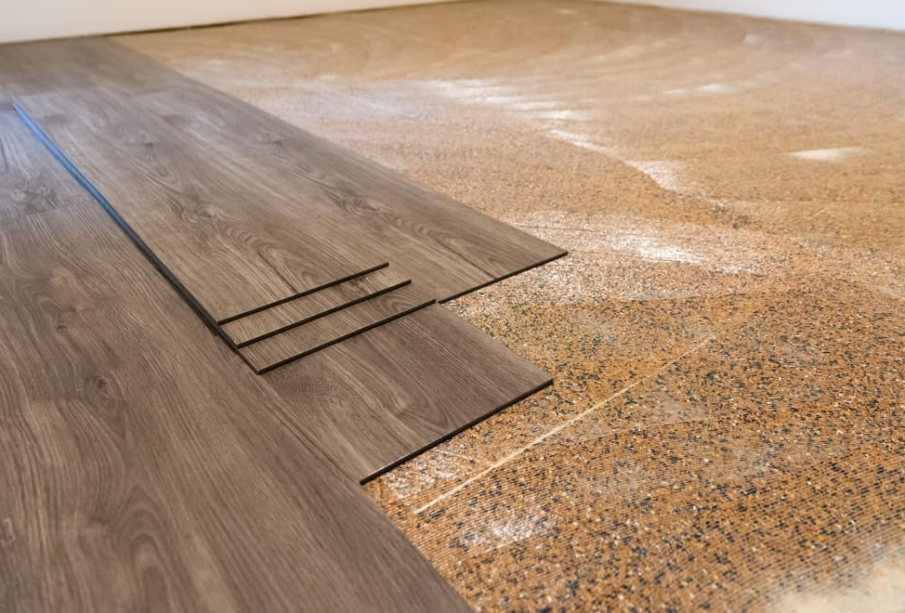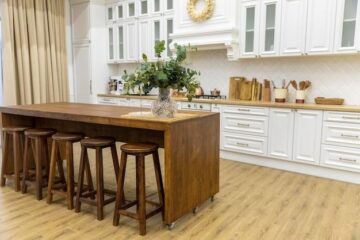What is the Difference Between LVP and Vinyl Plank?

If you’re considering replacing your hardwood floors, you might be wondering: What is the difference between LVP and vinyl? To help you make the right choice, we’ve compiled a short guide to the differences between the two materials. This flooring is made of a composite product and is extremely durable, as well as low maintenance. It is also waterproof, making it perfect for wet areas and easy to clean.
Luxury vinyl plank is similar to the engineered vinyl plank, with an added wear layer and high-quality core. Both types of flooring can be easily cleaned and have a wide range of color and style options. The main difference between the two types of flooring is that LVP is softer than LVP, and the latter is more resistant to dents. However, if durability isn’t a major issue, you can choose a rigid vinyl plank.
LVP is completely waterproof. The polymer core of the material makes it completely waterproof. This means that even in the rainiest of weather, water won’t soak through the material. On the other hand, SPC may be partially transparent and allow water to percolate through. This could cause swelling, which can cause problems. When considering these two types of flooring, consider the following factors to make the best choice.
LVP is more flexible than WPC, making it easy to install. This type of flooring requires glue, but it is less flexible than Rigid Core Vinyl Plank. While it does not improve the value of your home, you may want to consider it for other areas of the home. Nevertheless, LVP does not increase the value of your home, and it will scratch easily. If your floor is uneven, it might be necessary to prepare it with special floor prep.
LVP are both floating floors. LVP is the better option if you have a concrete or cement foundation. While LVP requires more care, LVP is more resilient and easier to install than LVP. Compared to wood, it is more cost-effective and durable. But it’s also hard to clean. The latter is more expensive, but it is more durable.
LVP is more durable than LVP, but it is not as durable as LVP. Its base film is usually made of cork or rubber. Both types of flooring can be damaged by harsh cleaning agents. But LVP is a great option for homes with a solid subfloor. If you’re planning to replace an existing hardwood floor, choose LVP and laminate. You’ll be happy you did.
LVP is more expensive than EVP, but it’s also more durable. The difference between the two is the core material. Both are made of a multi-layered structure. LVP is made of a single core material. LVP is made of two layers, which are different in thickness. The latter is more expensive, but it is more durable than LVP. It doesn’t crack, warp, or warp.
LVP and LVT are both similar in appearance. While LVP has a plank-like appearance, LVT comes in squares and is suited for use in kitchens and bathrooms. LVP is more affordable and offers a realistic hardwood look, while LVP is made to mimic tile. LVP is more durable than LVT, but it doesn’t look as realistic as LVP.
LVP is cheaper than LVP, but it has many advantages. While LVP can look more authentic than LVP, the former is a popular choice for people who love the appearance of wood or stone. It is easier to clean and has a more uniform look. The good thing about LVP is that it’s not as expensive as LVP, and it is less noticeable than the disadvantages of LVP.
LVP is made of multiple layers of compressed vinyl. The main layer is a high-res image overlaid on top. In addition, LVP is more durable and more flexible than LVP, which is more expensive. LVP is a great option for the price-conscious homeowner who wants a luxury flooring alternative. The difference is not only in the appearance, but in how durable it is.



















